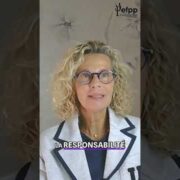“I’m fine, everything’s okay.” These words often hide a cry for emotional help that many don’t realize. Indeed, in reply to that friendly “How are you?”, many people will avoid giving an honest answer. That’s because they’re so used to hiding their emotional pain and trying hard to show they’re okay.
The best people can do in these cases is to be honest. That’s because hiding their feelings and personal suffering does them more harm than good. Indeed, burying what they feel deep down certainly won’t help them.
A few years ago, the Mental Health Foundation (UK) conducted a survey. They wanted to know how many times people would say “I’m fine” in one day.
The results showed that people would say these words 14 times out loud in a day. In fact, 19 percent of them genuinely felt fine and answered honestly. However, the rest admitted that they used the phrase out of politeness. However, they admitted that they also used it because they felt to reveal their true emotions would be both uncomfortable and inappropriate.
The Mental Health Foundation conducted this study for a specific reason. It was because depression rates increase each year. Also, people are finding it harder to discuss their worries and psychological issues with others (family, friends, etc.).
“Every man has his secret sorrows which the world knows not; and often times we call a man cold when he is only sad.”
-Henry Wadsworth Longfellow-
Why pretend we’re okay if we’re not?
People do it over and over again. Indeed, in any everyday conversation, you hear “Hey, how are you?” “I’m fine thanks”. In fact, these words have almost become something of a social nicety or a habit. They certainly don’t mean that if the mailman or the cashier at the supermarket asks us how we’re doing, we explain exactly what’s going on in our heads.
Doctor Abigael Saint, who conducted the survey we mentioned earlier, states that people need to find a midpoint. They need to stop lying, and stop trying to make people believe they’re fine when they’re actually not. It’s about telling “half-truths” to the people that aren’t part of their inner circle. In fact, using expressions like “I’ve had better days”, can create more authentic social interactions.
- Making use of the right social demeanor when sharing their worries with others can make them feel better.
- They should promote their social interactions by creating safe spaces where they’re able to speak openly without fear about their emotional state with the people around them. In this way, realities like depression will stop being a stigma.
- Experts claim that we’re becoming a hermetically sealed kind of humanity. What does this mean? Basically, that people find it hard to open up to others psychologically. Today, this is something we see the most in teenagers.

“I don’t know how to express my emotions”
The above study also details that 75% of polled people admitted they struggled to express their emotions. They know that there’s something that’s hurting them. However, it’s an internal state that’s so complex they don’t know how to share it with anyone else.
Furthermore, the “I’m fine” expression can sometimes hide a mental disorder, such as depression. In these cases, the sufferer is, in effect, kept prisoner by their psychological condition. This is because they simply don’t know how to open up to others. In fact, they’re unable to put a name to or describe these feelings that have completely altered their life.
Go beyond words and give emotional help
Often, someone who’s had a bad life stops thinking reasonably and lives on autopilot. They can’t see a way out, they can’t trust anybody, and they feel like nobody can help them. You, as a friend, parent, sibling, neighbor, or even just a work colleague, should be more alert in detecting someone else’s struggle.
Therefore, when you ask someone how they’re doing, and they reply with “I’m fine”, try to dig a little deeper. As a matter of fact, it’s never wrong to try and figure out what lies behind those words. In fact, it never hurts to try and work out what lies behind their expression, their tone of voice, or their movements.

If you notice something’s wrong, the best thing to do is to let them know you’re there for them. Say something like, “I just want you to know that if you ever need anything you can count on me. If you want to talk, I’m always here”.
Finally, now that you understand that behind the “I’m fine” there can be other hidden needs, try to have conversations that promote positive emotional connections. In fact, we should all be creating safe spaces in order to discuss and normalize the topic of mental health in our society.
Hiding Your Emotions Takes a Toll
The post “I’m Fine” The Most Frequent Cry for Emotional Help appeared first on Exploring your mind.



















Comments